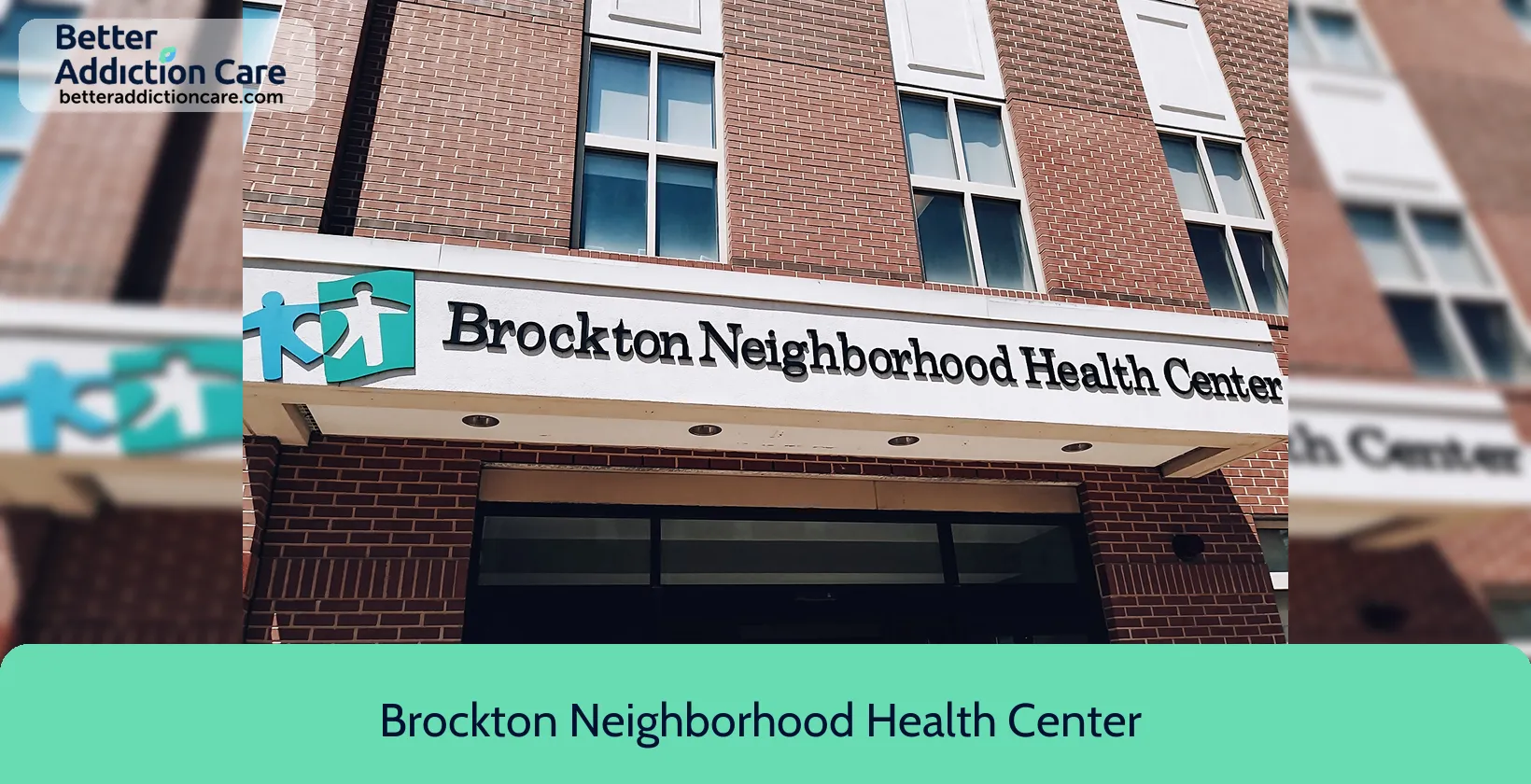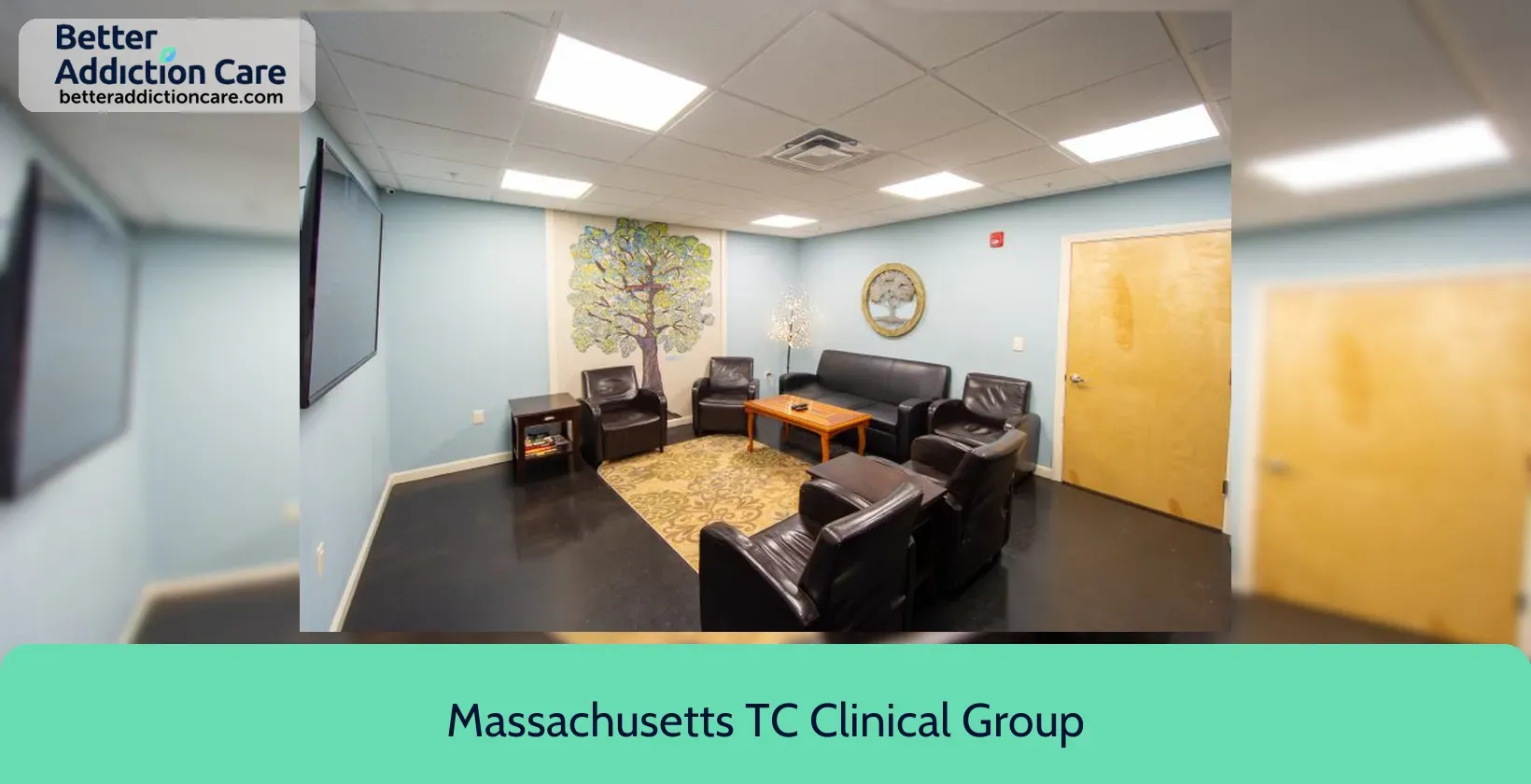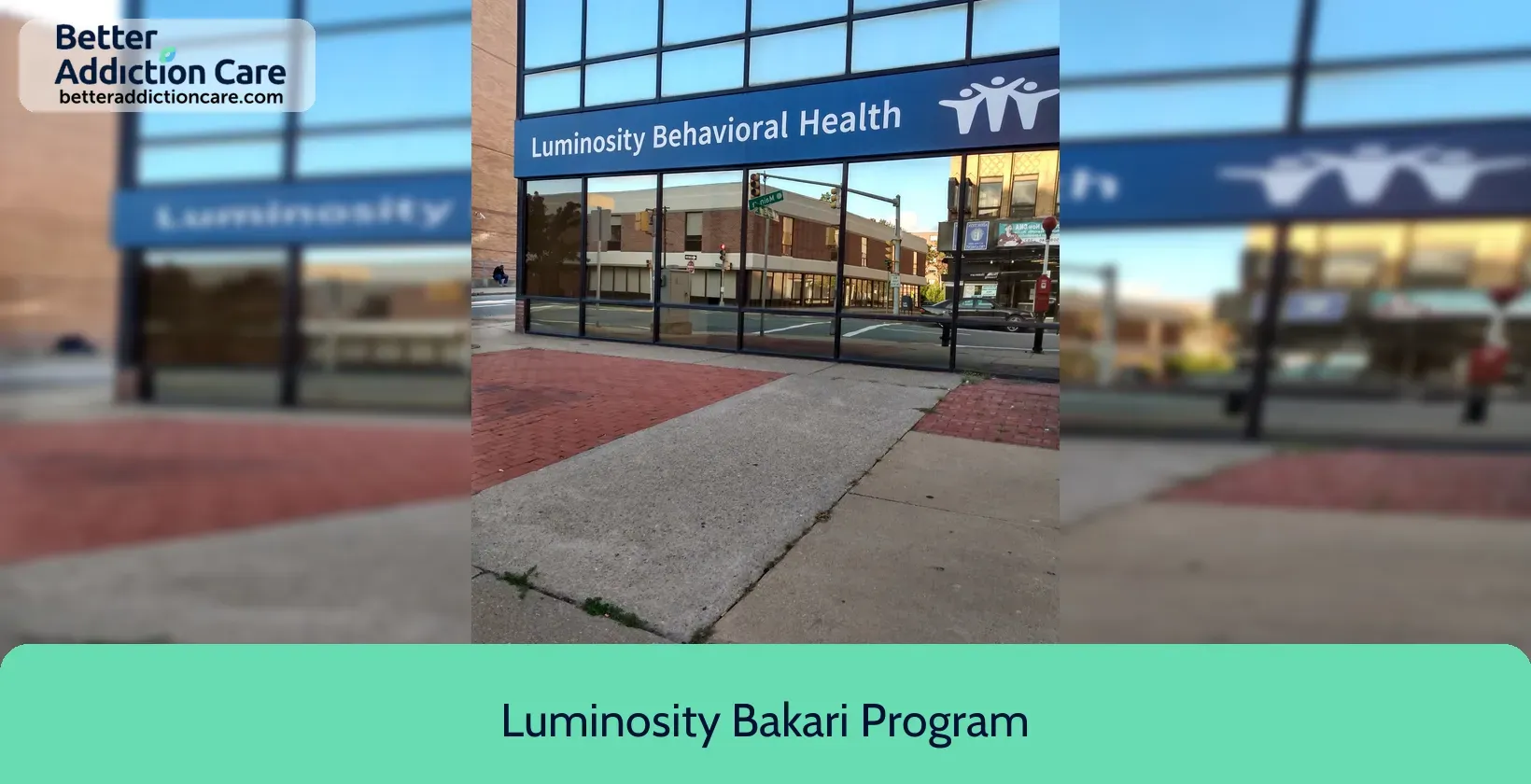Brockton - Quincy CTC

Overview
Brockton - Quincy CTC is an accredited substance abuse treatment center that provides outpatient treatment for men and women between 18 and 65+ years of age. As part of their special programs, Brockton - Quincy CTC treats clients with co-occurring mental and substance use disorders, pregnant/postpartum women, and clients who have experienced trauma. To help patients achieve sobriety, Brockton - Quincy CTC provides treats opioids detoxification and medication routinely used during detoxification.. Afterward, patients receive telemedicine/telehealth therapy, substance use disorder counseling, and trauma-related counseling during treatment. Brockton - Quincy CTC is located in Brockton, Massachusetts, providing treatment for people in Plymouth County, accepting cash or self-payment, medicaid, and medicare.
Brockton - Quincy CTC at a Glance
Payment Options
- Cash or self-payment
- Medicaid
- Medicare
- State-financed health insurance plan other than Medicaid
- Private health insurance
Assessments
- Screening for tobacco use
- Comprehensive substance use assessment
- Interim services for clients
- Outreach to persons in the community
- Screening for substance use
Age Groups
- Young adults
- Adults
- Seniors
Ancillary Services
- Case management service
- Opioid use disorder clients only
Highlights About Brockton - Quincy CTC
7.17/10
With an overall rating of 7.17/10, this facility has following balanced range of services. Alcohol Rehabilitation: 8.00/10, Drug Rehab and Detox: 6.92/10, Insurance and Payments: 6.67/10, Treatment Options: 7.09/10.-
Alcohol Rehabilitation 8.00
-
Treatment Options 7.09
-
Drug Rehab and Detox 6.92
-
Insurance and Payments 6.67
Accreditations
National Committee for Quality Assurance (NCQA):
NCQA accreditation is a recognition and evaluation process for healthcare organizations, given by the National Committee for Quality Assurance. It measures the quality and performance of healthcare providers, insurance plans, and managed care organizations in providing quality care to their patients. The NCQA accreditation is widely recognized as a benchmark for quality in healthcare and helps consumers make informed decisions about their healthcare options.
Drug Enforcement Agency (DEA):
DEA accreditation refers to the process by which a law enforcement agency is recognized by the Drug Enforcement Agency (DEA) as having met specific training, operational, and resource requirements necessary to participate in DEA-led drug enforcement efforts. This accreditation allows the agency to perform DEA-related tasks such as conducting investigations, executing federal search warrants, and participating in joint task forces.
Commission on Accreditation of Rehabilitation Facilities (CARF):

Established in 1966, the non-profit organization known as the Commission on Accreditation of Rehabilitation Facilities (CARF) has a dedicated focus on accrediting rehabilitation organizations. CARF's primary mission is to assist service providers, particularly rehabilitation facilities, in upholding and promoting the highest standards of care.
Registration: 39220
SAMHSA certification for opioid treatment program (OTP):
SAMHSA's Opioid Treatment Programs (OTP) Accreditation is a rigorous recognition process, signaling an OTP's commitment to high-quality care for those with opioid use disorders. It assures patients, families, and the community that the program adheres to evidence-based practices, maintains a safe environment, and employs qualified staff. This accreditation represents a commitment to addressing the opioid epidemic and promoting recovery, symbolizing quality and accountability in opioid addiction treatment.
NAATP:

Established in 1978, the National Association of Addiction Treatment Providers (NAATP) is a professional organization dedicated to advocating for and representing entities involved in addiction services. NAATP is committed to advancing the field of addiction services and ensuring that top-tier addiction treatment remains both accessible and widely available.
Treatment At Brockton - Quincy CTC
Treatment Conditions
- Alcoholism
- Substance use treatment
Care Levels
- Outpatient
- Outpatient methadone/buprenorphine or naltrexone treatment
- Aftercare
Treatment Modalities
- Telemedicine/telehealth therapy
- Substance use disorder counseling
- Trauma-related counseling
- Smoking/vaping/tobacco cessation counseling
- Group counseling
Ancillary Services
Additional Services
- Pharmacotherapies administered during treatment
- Housing services
- Breathalyzer or blood alcohol testing
Special Programs
- Clients with co-occurring mental and substance use disorders
- Pregnant/postpartum women
- Clients who have experienced trauma
Get Help Now
Common Questions About Brockton - Quincy CTC
Contact Information
Other Facilities in Brockton

7.23

6.65

7.89

6.88

7.02

6.95

7.36

7.54
DISCLAIMER: The facility name, logo and brand are the property and registered trademarks of Luminosity Bakari Program, and are being used for identification and informational purposes only. Use of these names, logos and brands shall not imply endorsement. BetterAddictionCare.com is not affiliated with or sponsored by Luminosity Bakari Program.
